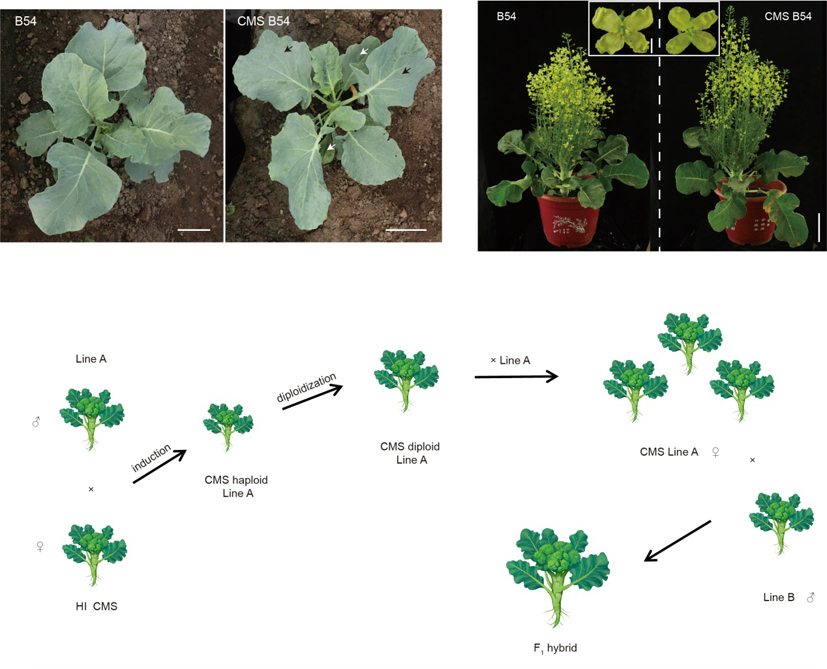“Source: Institute of Vegetables and Flowers
Recently, researchers from Institute of Vegetables and Flowers (IVF), Chinese Academy of Agricultural Sciences (CAAS) reported their research results in a paper entitled “One-step creation of CMS lines using a BoCENH3-based haploid induction system in Brassica crop” published in the journal Nature Plants.
Hybrid seed production in many crops, including B. oleracea vegetables, depends on cytoplasmic male sterility (CMS). The acquisition of homozygous cytoplasmic male sterility (CMS) lines typically relies on cross and 6-8 generations of backcrossing, a breeding process characterized by long cycles, high input, and low efficiency.
Researchers cloned the BoCENH3 gene from broccoli. By CRIPSR/Cas9 mediated genome editing, this study created mutants of BoCENH3 which could be used as paternal haploid induction line. Further investigation revealed that this paternal haploid induction line could mediate cytoplasmic exchange during haploid induction. By crossing the haploid induction line containing Ogura CMS cytoplasm with broccoli inbred line, CMS lines corresponding to the inbred line could be generated in one-step. The research resolves a key technical bottleneck in hybrid crop breeding, significantly enhancing the efficiency of breeding for broccoli and other cruciferous crops.

Figure 1. BoCENH3 mediated one-step creation of CMS lines in B. oleracea
The research was supported by the National Key Research and Development Program of China, the National Natural Science Foundation of China, the China Agriculture Research Systemthe Agricultural Science and Technology Innovation Program.
More information can be found through the link: https://www.nature.com/articles/s41477-024-01643-w
By Fengqing Han (hanfengqing@caas.cn)